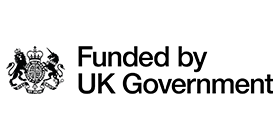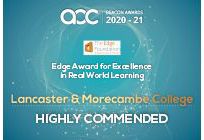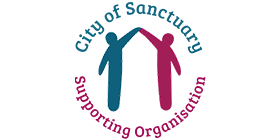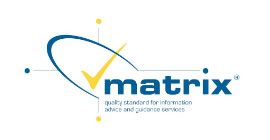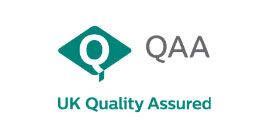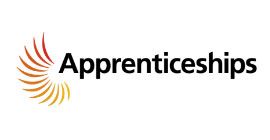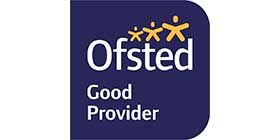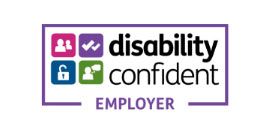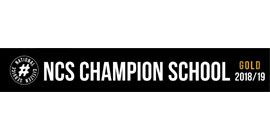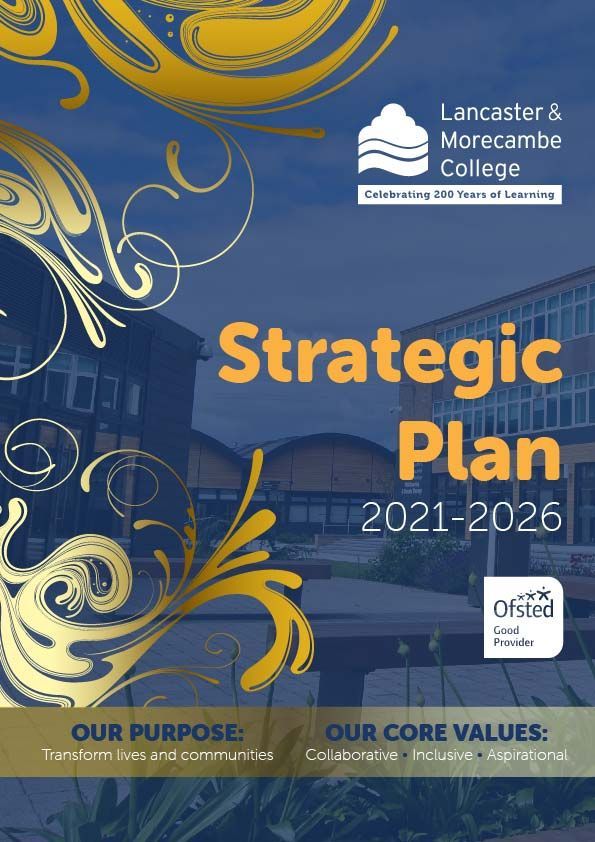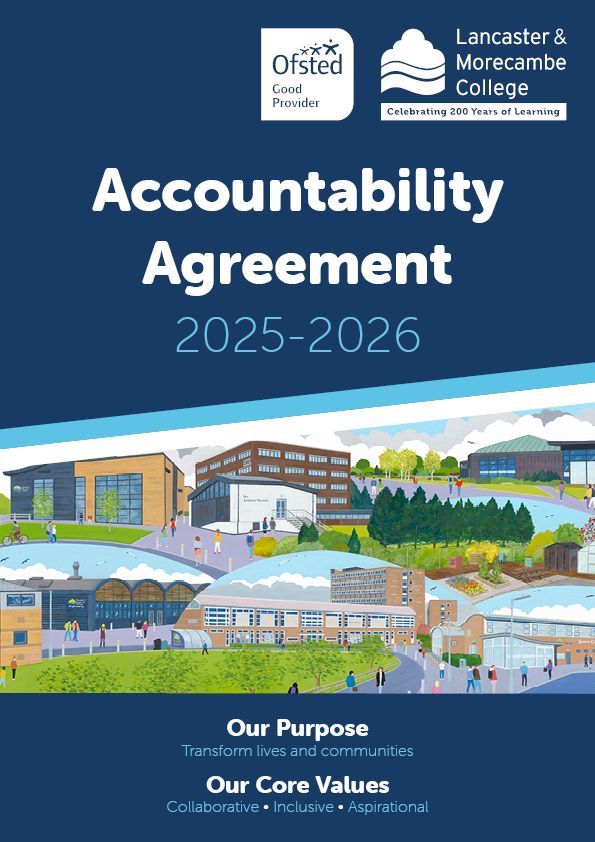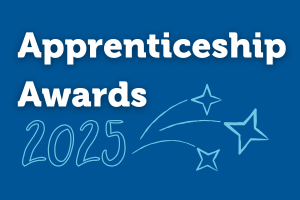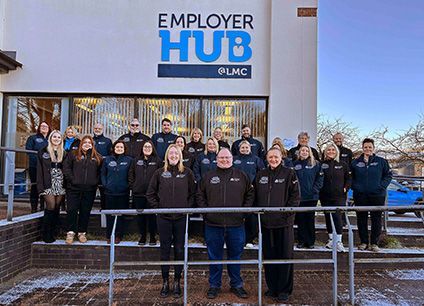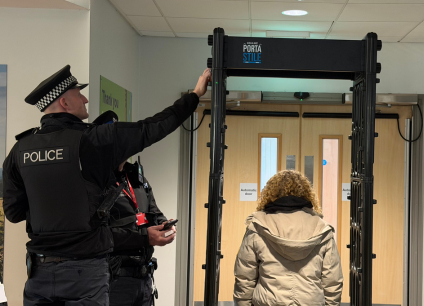Governance
Interested in becoming a Governor?
Lancaster & Morecambe College is looking for individuals with a broad range of skills and expertise to join its voluntary Board of Governors and assist in driving forward the strategic direction of the College and in the delivery of its Purpose and Values.
LMC is a General Further Education College providing a wide range of vocational and technical education for post-16 learners and apprentices in Lancaster, Morecambe and the wider surrounding districts of north Lancashire and South Cumbria. The College places itself at the heart of the communities it serves.
The Board of Governors oversees the work of the College and provides strategic leadership to support and challenge leaders. Governors make strategic decisions that will ensure the future of the College and that the courses it delivers meet the needs of its local communities. It is an extremely rewarding role that has a demonstrable impact on the lives of young people and adult learners who access College. A Governor brings professional skills, life experience and, importantly, their commitment to having a positive influence on the strategic direction and impact of the College.
We are always keen to hear from anyone interested in joining the Board and we are particularly seeking people with knowledge, skills and experience in any of the following areas:
- Finance and/or Audit
- Primary School Links
- Property/Estates Maintenance
- Community/Voluntary Experience
- Leadership Experience in FE
We would also be particularly keen to hear from local employers and businesses.
The Board encourages applicants from diverse backgrounds and interests and operates an inclusive policy regarding Board membership. No formal qualifications are necessary and all applications will be considered.
If you feel that you could fulfil the role of a Governor, please contact Oona Cushen, Governance Advisor, on o.cushen@lmc.ac.uk to arrange an informal discussion.
Lancaster & Morecambe College is an independent Further Education Corporation established under the Further and Higher Education Act 1992, as substituted by the Education Act 2011. The College is also an exempt charity for the purpose of the Charities Act 1993, as amended by the Charities Act 2011. Exempt charitable status means the College must comply with charity law but is not regulated by the Charity Commission.
Responsibility for funding currently sits with the Education and Skills Funding Agency (ESFA), within the Department for Education (DfE). The Corporation must also comply with the Conditions of Funding Agreement, the Post-16 Audit Code of Practice, Skills and Post-16 Education Act 2022 and the Technical and Further Education Act 2017.
The Corporation (also known as the Governing Body or Board of Governors) must operate within a statutory legal framework, which is set out in the Instrument and Articles of Government and the Standing Orders of the Corporation and its Committees. The Instrument of Government sets out the arrangements for membership and meetings of the Corporation and its Committees. The Articles of Government provide the framework for the conduct of the College and define the responsibilities of the Corporation, the Principal and the Governance Adviser.
As well as being regulated by the Department for Education (DfE), colleges, as providers of education, are subject to inspection by the Office for Standards in Education (Ofsted), an independent inspectorate which is funded by and reports directly to Parliament. Ofsted inspects all colleges on a cyclical basis, but all colleges are subject to an annual risk assessment. The College was last inspected in March 2020.
The Corporation may, by resolution, dissolve itself and provide for the transfer of its property rights and liabilities.
What is Governance?
Governance is the act of governing – not managing. Governors are there to represent the interests of the local community in particular and public interest in general by providing strategic leadership and direction to the College. The Board sets out the strategic direction of the College in its Strategic Plan and Accountability Agreement. Governors then scrutinise progress that the senior team is making to achieve these objectives, ensuring that the curriculum meets the needs of students, employers and the local community.
Governors do not get involved in the operational decisions and individual Governors do not have the authority to enter into contracts for the procurement of goods and services. Operational responsibility is delegated to the Principal within a clear framework of accountability.
Members of the Board are drawn from business, professional, public sector and community backgrounds, with a range of professional and specialist skills, knowledge and experience. The Principal is also a member, alongside two Staff Governors and up to two Student Governors. Every member of the Board will act in the best interests of the College and, accordingly, will not be bound in speaking and voting by mandates given to her/him by anyone else.
The structure of the Governing Body means that the majority of business is conducted at Full Board meetings, which take place a minimum of six times per year. The Board is also supported by three committees; Audit and Risk Assurance, Search, and Remuneration, which meet two to three times per year.
The Corporation is responsible for the following functions:
- the determination and periodic review of the educational character and mission of the College and the oversight of its activities;
- the approval of the quality strategy of the institution;
- the effective and efficient use of resources, the solvency of the College and for safeguarding its assets;
- the approval of the annual estimates of income and expenditure (the budget);
- the appointment, pay and conditions of service of senior post holders (Principal, Vice Principal Finance and Resources and Governance Adviser);
- the approval of the framework for the pay and conditions of service of all other staff;
- the approval of the policy and charging of tuition and other fees payable to the College, including remission fee policies (subject to any terms and conditions attached to grants, loans or other payments paid or made by an agency).
While there is no legal requirement for a College to adopt a code of governance, the College Accounts Direction requires that each Governing Body publishes a Statement of Corporate Governance and Internal Control within its financial statements and annual report. This must set out or refer to the principles by which the College is governed. LMC has adopted the Association of Colleges Code of Good Governance 2024, which has been widely adopted within the sector.
Governors are committed to the Seven Principles of Public Life (the Nolan Principles). These apply to anyone who works as a public office holder, as servants of the public and stewards of public resources. The seven principles are: selflessness, integrity, objectivity, accountability, openness, honesty and leadership.
Public Value Statement
As an exempt charity under the terms of the Charities Act 2011, the College has a commitment to provide value and benefit to the community it serves. In setting and reviewing the College’s strategic objectives, Governors have had due regard for the Charity Commission’s guidance on public benefit that is expected to derive from the advancement of education and training. This is demonstrated through its Strategic Plan (including its purpose and values) and its Accountability Agreement.
Governors are particularly keen to ensure that learners develop technical skills, knowledge and behaviours, whilst providing a broader education that enhances an individual’s employability skills. The College wishes to nurture learners into citizens who can engage with and positively contribute to their community. In delivering its strategic objectives, the College aims to:
- Provide opportunity for personal and professional development, through widening participation, increasing social mobility and tackling social exclusion;
- Provide outstanding learning and student experiences;
- Support progression into employment or onto higher study; and
- Maintain links with employers to provide a voice of industry and enhance student opportunity.
Contact the Board to provide feedback or ask a question
Oona Cushen
Govenance Adviser & Clerk,
Lancaster & Morecambe College, Morecambe Road, Lancaster, LA1 2TY
If you require any documents in a different format, please contact the Governance Adviser
LMC In the Spotlight



